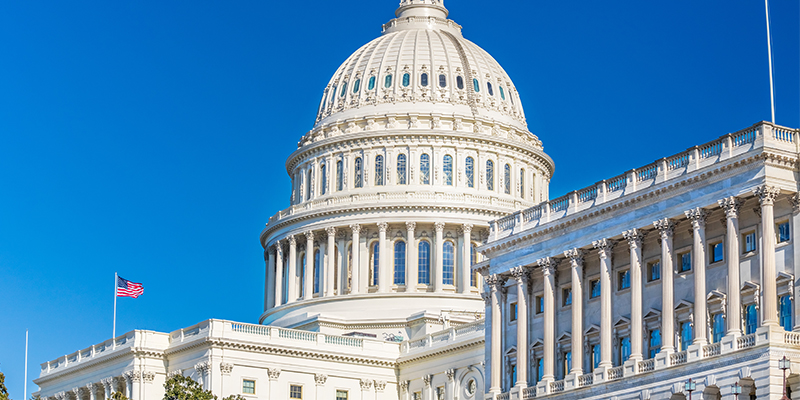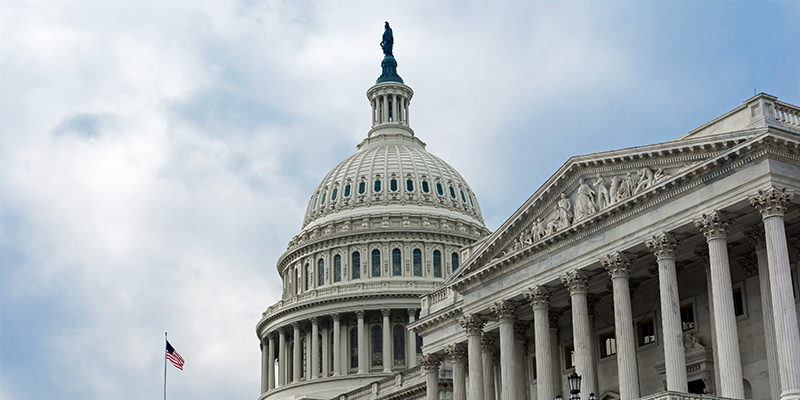Congressional Democrats are struggling to come up with a plan to pass legislation containing much of their and President Joe Biden’s domestic policy agenda, with an eye toward having tangible achievements that can be touted in their 2022 midterm reelection bids.
After spending much of 2021 disagreeing with centrist Senators Joe Manchin (D-WV) and Kyrsten Sinema (D-AZ) over the scope of reconciliation legislation and the policies in a number of issue areas, House Democrats passed the Build Back Better Act (H.R. 5376) in November. Despite technically being within the $1.75 trillion total spending limit Manchin had said was the largest he could support in a bill, many of the bill’s provisions were given politically unrealistic short durations – an oft-used budgetary gimmick to reduce the cost estimate. After some reportedly acrimonious exchanges with the White House, Manchin surprised Democrats when he announced during an interview on a public affairs program that he could not support the House-passed bill, upending their legislative strategy.
Officially, the Biden administration and Democratic leadership still maintain that negotiations with Manchin on passing a scaled-back version of the House’s Build Back Better legislation will continue, with House Speaker Nancy Pelosi telling her caucus after Manchin’s announcement of non-support that, “We stay at the table to pass the Build Back Better Act. While it is disappointing that we may not have a law by the end of the year, we are hopeful that we will soon reach agreement so that this vital legislation can pass as soon as possible next year.” For his part, Senate Majority Leader Chuck Schumer has stated his intent to bring to the Senate floor some form of the Build Back Better legislation for a recorded vote.
A tendency for legislative overreach seems to be the distinguishing character flaw of political parties in the United States in recent history. Republicans overpromised their supporters when they said they would repeal President Barack Obama’s Affordable Care Act, despite not having the votes in the Senate. As the Wall Street Journal’s Gerald Seib wrote earlier this week, the original Build Back Better legislation also “proved to be an overreach, trying to enact in one fell swoop more social and climate programs than Democrats had the votes to actually pass.”
Democrats are trying to give themselves some time to come up with a new approach and possibly reach a deal with Manchin. A Democratic party retreat scheduled for mid-February has been postponed due to the COVID-19 omicron variant outbreak, and Biden’s first State of the Union speech has been scheduled for much later than usual on March 1. Release of the administration’s FY 2023 budget proposals has also been delayed until after the State of the Union speech. According to one news report on the budget delay, “If Democrats believe they can strike a deal between West Virginia Democrat Joe Manchin III and progressives in the House early in the year, Biden might want to delay the budget submission until the fate of the climate and social safety net legislation is clear.”
But moderate and centrist House Democrats from swing districts are desperate to get results before their congressional primaries, the earliest of which start in March, and some are pressuring Democratic leadership to change course and pass portions of their agenda popular with their voters rather than waiting for agreement on a comprehensive package of initiatives.
Their desperation is understandable. With the COVID-19 crisis still with us and inflation at a near-40-year high, Biden’s approval ratings are at an all-time low. More than 62% of Americans believe that the country is on the wrong track, according to the Real Clear Politics average of polls. With the president’s party historically losing seats in Congress during the midterm elections, this set of facts is causing serious heartburn to Democratic incumbents who have to run in competitive districts, and who need to show they have delivered on their promises to the voters. At worst, these Democrats want the Senate to vote on these popular parts of the bill, even if passage is not assured, as a means of showing voters a contrast with their Republican opponents.
For the time being, however, Pelosi and her leadership team, with the support of the majority of the progressives in the Democratic caucus, remain committed to pursuing a larger, more transformational reconciliation package that would result in the enactment of more elements of the Democratic agenda.
One aspect of the challenge facing House Democrats is also that while many in their caucus may in concept want to pass certain portions of the bill using reconciliation, there is not universal agreement on what those should be. With only a five-vote majority, the bill which passed the House in November already contained compromises designed to keep enough Democrats on board to ensure passage. Breaking apart the Build Back Better legislation at this point may therefore backfire. But the political reality of a midterm election means that the window for action closes early, and vulnerable Democrats may demand action sooner rather than later.














